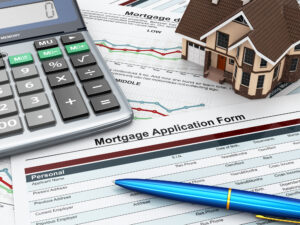Securing a mortgage when self-employed isn’t as difficult as some might imagine – although you will need to provide some proof of self-employment and demonstrate your incomings and profits.
Below Nima Ghasri, Director at regulated property buyers, Good Move offers helpful tips on how to get a mortgage approved when self-employed.
Lenders will look at your average profit – so have proof
If you’ve had highs and lows of income and your earnings vary dramatically from year to year, you might need to provide more evidence to a lender. Lenders will look at your average profits, so if the previous year has been a little bit leaner, you may need to prove that you can guarantee future income, with proof of new clients, or contracts. Alternatively, proof that you have a significant amount of savings (separate from your deposit) may help to get you approved for a self-employed mortgage.
Use an accountant
Lenders prefer to see accounts that have been provided by a qualified accountant, so if you do your own accounts, this is something to bear in mind. Some lenders won’t even consider mortgages for self-employed people whose accounts haven’t been signed off by an accountant – and make sure your accountant is certified or chartered.
Get prepared well ahead of time
Requesting a hard copy of SA302 forms can take a few weeks. As getting a mortgage when self-employed can be a bit more complicated, it’s worth taking the time to make sure everything is in order so there’s no confusion for your application. Also remember that if family members are contributing towards your deposit, they’ll need to declare this.
Get expert help
If you’re really struggling – maybe you don’t have two to three years of accounts to submit or a complicated set of earnings and dividends – it may be worth getting a financial adviser or mortgage broker who can help clear up exactly how to get a mortgage when self-employed, and even advise on the best lenders to approach.
Take a hard look at your credit score
As getting a mortgage when self-employed can be tricky, you should make sure you’re going in with the best possible preparation – and like any other mortgage, your credit history is a big part of this. Make sure you:
- Are on the electoral roll
- Check your credit file – but don’t make too many checks in a short space of time
- Don’t let any credit cards reach their limit
- Avoid making just the minimum payments on credit cards
Nima concludes: “Applying for a mortgage when you’re self-employed can be daunting – but as long as you’re well prepared, hopefully things will go smoothly. Just make sure your application is as bulletproof as can be, have your forms and deposit ready to go, and soon you’ll be in your dream home!”
